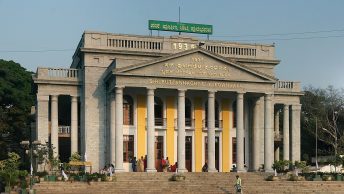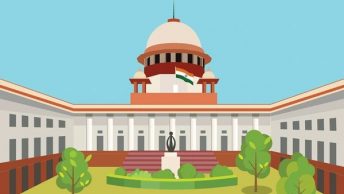Introduction
The recent ruling by a Division Bench of the Bombay High Court in the case of Kunal Kamra vs. Union of India (“Kunal Kamra”), confirmed the unconstitutionality of Fact-Check Units (“FCUs”), following Justice Chandurkar’s third opinion on the matter, as well as Justice G.S. Patel’s. Needless to say, free speech in India would’ve had to endure a harrowing experience if the government controlled what information constituted the ‘truth’ and what did not. This is not to say that misinformation as a phenomenon does not have devastating consequences on the public’s access to resources in times of a crisis, such as COVID-19; however, the State as the determinant of what is correct and what is false, poses an equal, if not greater detriment to society.
In full awareness that abundant pieces and commentaries have been written surrounding the judgment itself and that multiple technical facets exist with respect to the issue itself, this piece aims to trace the origins of the justifications provided by Justices G.S Patel and Chandurkar in affirming that one’s right to freedom of speech and expression does not encompass the ‘right to truth’, that the government has provided no rationale in ascertaining what might be ‘fake’ or ‘false’ and, that the government simply may not be the final arbiter in its own matters. Interestingly enough and irrespective of whether the Court was aware of it or not, their justifications echoed what John Stuart Mill penned down in the 19th century in his seminal piece – On Liberty. This essay therefore effectively takes a Millian perspective on the entire matter and offers its humble contributions to the vast expanse of literature on the freedom of speech and expression in India.
Why Mill?
The first question and a reasonable one too, is why I attempt to modernize Mill’s ideas nearly 2 centuries later, and whether he really holds any standing in the contemporary era. To answer this, I argue that John Stuart Mill was one of the most persuasive figures in establishing democratic societies as they are today. His advocacy that individuals must be allowed to indulge in any actions they desire, as long as they do not result in harm to others, forms the basis for fundamental rights and the reasonable restrictions placed on them, both in India and around the world.
On Liberty was written in the backdrop of societies rapidly transforming from an aristocratic model to a democratic one. The current political clime in India, magnified by no actual majority ruling the country depicts a change back to a perverted form of aristocracy, simply without the titles, and under the garb of a democracy. This cusp of transformation therefore warrants discussing the ideas of Mill once again, considering that his ideas were meant to address the dangers that majorities and supposed majorities brought for societies.
This much being established, the reason we must conflate his ideology with the recent judgment stems from Mill’s distinct specialization in the area of truth and information.
Mill’s Understanding of ‘Truth’
As much as the freedom of speech and expression is infused under the same provision in the Indian Constitution, Mill’s understanding of liberty of speech and thought too, is equally intertwined. He believes that it is “…impossible to separate the cognate liberty of speaking and writing from that of thought.” In On Liberty, he argues that the mere silencing of an opinion is an evil, and that it robs the living generation and all of posterity, the opportunity to determine what constitutes a truth, and what does not. This raises a three-fold question – firstly, is there any significance in society being able to afford the opportunity to determine what is ‘true’; secondly, what does Mill mean when he refers to ‘truth’ and ‘true information’, and thirdly, how different is his conception from the Indian government’s understanding of ‘truth’, as argued by its representatives in Kunal Kamra.
A. Why Should Every Man get to Choose his Interpretation of the Truth?
Answering the first prong of the question is relatively easy; Mill himself did us the favour of explaining the dreadful consequences in a parallel world where individuals have no choice in choosing their interpretation of the truth or have foregone their right to choose. Such a situation in Mill’s eyes arises when a ‘custom’ – a long-accepted way of doing something, is given heightened importance, where people are accustomed to believe certain philosophers’ feelings on subjects as being superior to their own reasoning and logical interpretations.
Alexander Meiklejohn, a prominent American philosopher’s Free Speech and Its Relation to Self Government, which is relied on in Justice G.S. Patel’s authored judgement, is itself bought from Mill’s principle that every man must have the reasonable opportunity of identifying what is the truth to him, and that any collective judgement (usually under the guise of it being a custom) passed by society on behalf of him or by the State on behalf of him, acts as a deprivation to both his person as well as the State. This is because Mill does not view opinions as private goods; rather he believes that most if not all opinions have some bearing on society – if they are proved right, they embody a meaningful addition to society’s collective knowledge, and if they are proved false, it inevitably reveals the truth or points one in the direction where they may find the truth.
Therefore, when men are not afforded the choice in determining whether they construe something to be the truth or not, their allegiances towards the supposed ‘truth’ are presumed, man’s infallibility is presumed, and one person or a set of people hold the burden-cum-illegitimate power of determining what is the truth for every single individual. Because such a determination is not far from being shaken every once in a while, by evolving sections of society, it becomes effectively impossible to objectively decide what the ‘truth’ might be.
B. What is Mill’s definition of the ‘Truth’?
The second prong can be deciphered from Mill’s philosophy and while I cannot deny that it is depicted quite abstractly, his understanding of the truth is closely interlaced with utilitarian principles, another area of his expertise. He believes that the truth of an opinion falls in close association and subordination to its utility, i.e. if an opinion is true, it adds to the opinion’s utility in society and if an opinion is false, it stills adds to its worth in society, but in a lesser proportion, though the difference in utility between both is not great.
Drawing from this, his definition of the ‘truth’ (if one were to exist explicitly), would not be the knowledge or belief that is held with such steadfastness that the holder believes it to be infallible, but would be such knowledge or belief that is held by one after being discussed, refuted, worked upon and is finally the result of many tribulations.
C. What has been the Government’s interpretation of Truth?
The Indian government’s eagerness to define what information counts as ‘truth’ raises questions about their unclear grasp of the concept, making it the most relevant issue of the three. In the Kunal Kamra case, the amendment to the Information Technology (Intermediary Guidelines and Digital Media Ethics Code) Rules, 2021 allows the State not only to unilaterally pronounce what is true and what is not, under the assumption that a truth is equal to a fact through its established FCUs, but also mandates the removal of this supposed ‘untrue’ information. Effectively, as per Mill’s standards, there is not only disputing of an opinion that is taking place, but also the suppression of the same. While the first is accepted by Mill to be a productive process through which a matter, if a truth, is strengthened through its challenging and if false, is disproved and the original truth is strengthened, the second principle violates all that On Liberty stands for. This is because Mill’s understanding of the truth is not a unilateral pronouncement but is the result of discourse as stated previously.
At this stage, one would be reasonable for harbouring suspicions regarding my direct transposition of Mill’s ideas to the current scenario and the proclamation that it is the only right way to do so. While I am not averse to challenging assumptions set out in this article and while I have no personal obligations to Mill, why I argue that this ideology is relevant is because all obvious facts today are the result of discussions and refutations by humans who existed in those eras. For instance, the world was believed to be flat with corners that one could fall off of, until logical sense was applied and it was finally determined that earth’s shape was indeed spheroid. If the government was allowed to establish its FCUs, it could effectively pronounce India’s shape to be square and not peninsular in nature, as long as a linkage could be made to India’s shape and it having to do with ‘government information’ – a link that isn’t entirely hard to form.
Kruthika Senthil Kumar is a 2nd year student at Hidayatullah National Law University, Raipur. She takes a keen interest in the intersection between law and philosophy.
[Ed Note: This piece was edited by Jeetendra Vishwakarma and published by Baibhav Mishra from the Student Editorial Board]






yj7odg
8uq401
kq2emb